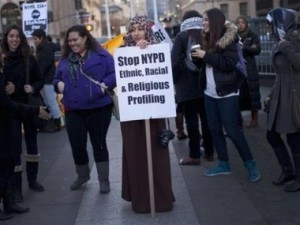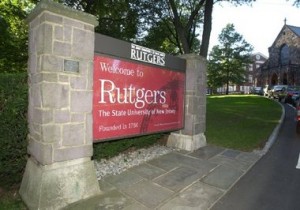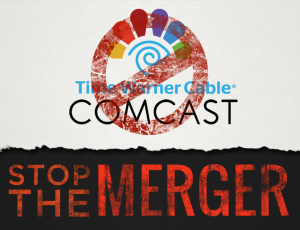Podcast: Play in new window | Download
Updates:
- Brooklyn Folk Festival April 18-20 2014
- Michael Smith Reads Listener Feedback: An Observation On Corporations
NJ Federal Court Dismisses NYPD Spying On Muslims Case
We take a look into the failed lawsuit challenging the New York City Police Department’s broad surveillance of Muslims in New Jersey. As listeners may know the case Hassan v City of New York brought by the Center for Constitutional Rights and Muslim Advocates was dismissed last month. Since 2002, the NYPD spied outside its jurisdiction on at least 20 mosques, 14 restaurants, 11 retail stores, two grade schools and two Muslim Student Associations in New Jersey. The monitoring included using racial and ethnic profiling systems, video surveillance, photographing, community mapping and infiltration.
- It was very troubling for me too Michael. At Rutgers where I teach, we found out that the NYPD had a safe house just off of our New Brunswick campus.
- It’s really troubling that student groups on my campus not to mention grade schools and Muslim book stores and community centers have been invaded.
- It’s created a chilling sentiment among the Muslim community. People self-censor, they’re afraid that what they say will be used against them in entrapment cases.
- This decision by this judge is completely stunning. The logic that he puts forward and I’m reading from his ten page report. He says “the police could not have monitored New Jersey for Muslim terrorist activities without monitoring the Muslim community itself. The motive for the program was not solely apparently to discriminate against Muslims but to find Muslim terrorists hiding among ordinary law abiding Muslims.”
- If you examine what he says, the notion that there are terrorists in the Muslim community, therefore its alright to go out and spy on them.
- It’s based on the notion that somehow Islam serves to radicalize Muslim Americans into performing political violence.
- This program has been active since 2002, but there hasn’t been one terrorism related lead, let alone any kind of conviction.
- Since the events of 9/11 there have been all sorts of pseudo-scientific attempts to show that somehow the religion Islam creates political violence.
- If you look at Hamas, the group in Palestine, they’ve gone to the Quran to justify violence as well as to justify cease fire.
- It’s politics really as the key reason why people turn to violence and so to somehow blame Islam, this is a form of cultural racism.
- What this means is that the NYPD can go around with impunity and spy on religion minorities, not just in New York City, but in New Jersey, in Connecticut.
- It sends a green light to other police departments across the country as well as the FBI which has similar programs.
- He (Judge Martini) justified his ruling referring to a case in the Supreme Court. I think we have a lot of work to do ahead of us in pushing back against this racist logic.
- Some people claim that there isn’t racism against Muslims because Muslims aren’t a race.
- There’s tremendous variation between human to human in terms of our genetic make up and 85 percent of this variation occurs within a so called race.
- Why are we calling it racism? Because its a form of cultural racism, because its based on the premise that Islam somehow creates an ideology, it creates a culture that programs people to act in violent ways.
- The reason why people turn to violence often is because peaceful movements failed.
- I’m currently working on a book on the cultural logic of the national security state.
- If you look the campaigns If You See Something, Say Something. What’s being asked of you is to become an agent of state surveillance.
Guest – Deepa Kumar, an Associate Professor of Media Studies and Middle Eastern Studies at Rutgers University. Her work is driven by an active engagement with the key issues that characterize our era–neoliberalism and imperialism. Her latest book is Islamophobia and The Politics of Empire by Haymarket Books and is in response to the events of 9/11, the Bush administration launched a “war on terror,” ushering in an era of anti-Muslim racism, or Islamophobia. Her first book, Outside the Box: Corporate Media, Globalization and the UPS Strike (University of Illinois Press, 2007), is about the power of collective struggle in effectively challenging the priorities of neoliberalism.
—–
Net Neutrality – Time Warner/Comcast Merger
A merger of media cable giants Comcast and Time Warner Cable threatens net neutrality. Comcast intends to take over Time Warner for more than 44 billion dollars in stock. This proposed merger would unite the nation’s largest cable TV and internet service provider with the second largest cable company. If combined, these companies would offer service to two thirds of U.S. households. The deal must be approved by the U.S. Justice Department and the FCC.
- What we would have here is a 45 billion dollar deal combining the nation’s largest and second largest cable company.
- They face some competition especially from video from satellite providers.
- The place where they don’t face competition at all is on the broadband platform.
- This deal would strengthen them both in their cable TV programming dominance and on the broadband side too.
- You’d have one company that reaches two thirds of the country and its the only option some people have for advanced communications services, putting video and broadband together.
- That would give tremendous power of everything we see on both TV and online. Comcast is already a must have for any independent programmer.
- For even web providers such as Netflix.
- Even without that horizontal competition today between Comcast and Time Warner cable this is not good news for the American people, for free expression, for lower prices, for anything we care about.
- Net-neutrality means preventing unreasonable discrimination against content.
- Verizon went to court and had these net neutrality rules struck down that the FCC put forward.
- They (Verizon) said they internet is really like a newspaper than it is like a phone system and what that means is that we at Verizon should have editorial discretion over the internet content we transmit.
- An internet service provider used to be somebody you went to who rode over the top of an open phone system. Right? Back in the dial up days there were a number of internet service providers and you could switch from one to the other.
- Internet content should not be regulated by the Federal Communications Commission full stop yet the communications network that we all use to get online is something where have to have a public oversight role and a certain degree of universality, affordable and openness.
- Susan Crawford talks about these issues as well. She said “What the companies want to do is confuse the conversation for the sidewalk.”
- We need these rules to keep open the sidewalks, to keep open the public spaces and this concept of public communications network that serves everybody.
- The twin review by the FCC and the Department of Justice might seem cumbersome but they have different mandates.
- DOJ and the FTC are looking to prevent a decrease in existing competition.
- The FCC has a broader mandate to make the sure the deal is actually in the public interest.
- Comcast bought up NBC only 3 years ago. Since then, AT&T tried to acquire T-mobile.
- Verizon has almost 50 percent of the entire (wireless) industry’s profits.
Guest – Attorney Matt Wood helps shape the policy team’s efforts to protect the open Internet, prevent media concentration, promote affordable broadband deployment and prioritize a revitalized public media. Before joining Free Press, he worked at the public interest law firm Media Access Project and in the communications practice groups of two private law firms in Washington, D.C. Before that, he served as editor-in-chief for the Harvard Civil Rights-Civil Liberties Law Review, worked for PBS, and spent time at several professional and college radio and television stations. Matt earned his B.A. in film studies from Columbia University and his J.D. from Harvard Law School.
—————————————————————
—



